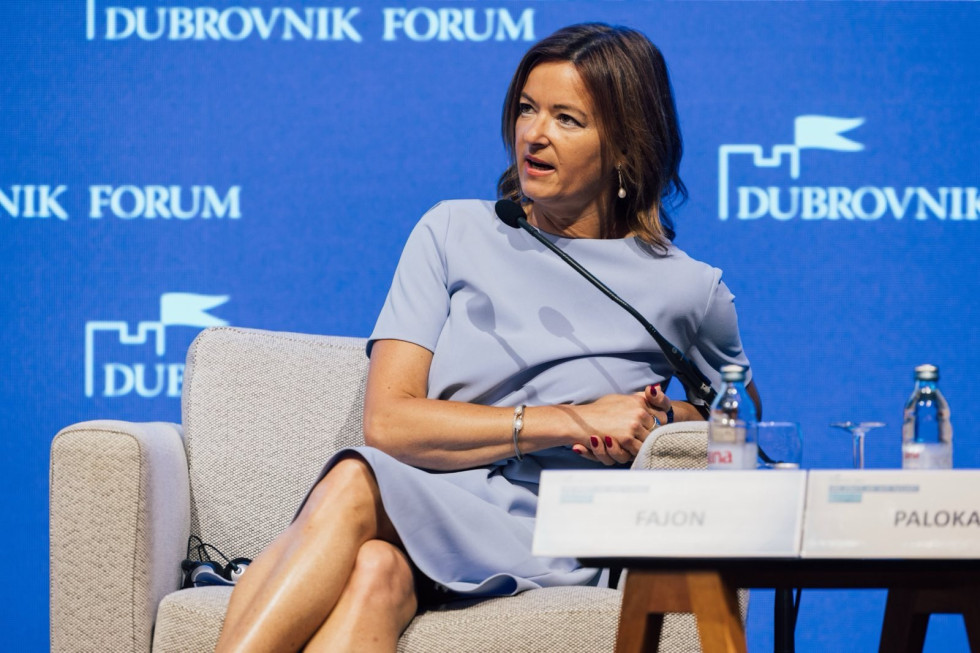Minister Fajon at Dubrovnik Forum: ”Investing in science and research is key to a strong EU”

Minister Tanja Fajon taking part in a panel discussion | Author Ministrstvo za zunanje in evropske zadeve
"Europe faces many challenges, ranging from demographic changes to issues with democracy. The recent European elections have revealed a clear trend toward the rise of the far right, prompting us to reflect on what citizens are communicating through their votes and how we should address their discontent. In Slovenia, this year marks the 20th anniversary of EU accession, which encourages us to take stock of all the benefits the Union has brought. People's lives have indeed improved, and I am convinced that the EU is a remarkable project based on real values. But we also need to think ahead about how to make Europe stronger. The answer is clear: we need to strengthen the values that bind us together," said Minister Fajon in a debate entitled "Quo Vadis, Europe?".
"A strong Europe means a strong voice for the Union in the world. A voice that defends the international order and the UN Charter. A strong Europe is also a competitive and resilient Europe that invests more in science and research. Last but not least, a strong Europe is an enlarged Europe, encompassing both the Western Balkans and the East. Slovenia will continue to be a vocal supporter of enlargement, while at the same time proposing concrete solutions in the accession negotiations, such as the use of qualified majority voting instead of unanimity, which would speed up the process within the negotiation process itself and prevent deadlocks caused by internal political issues," the Minister said.
In addition to the Croatian political leaders, the Forum was attended by the EU High Representative for Foreign Affairs and Security Policy, Josep Borrell; the foreign ministers of the Western Balkans; the heads of the diplomatic services of Italy, Ukraine and Armenia, Antonio Tajani, Dmytro Kuleba and Ararat Mirzoyan; the international community's High Representative for BiH, Christian Schmidt; the Director-General of the WHO, Tedros Adhanom Ghebreyesus; and others. The Forum provided an opportunity for many useful and interesting discussions on common global challenges.

